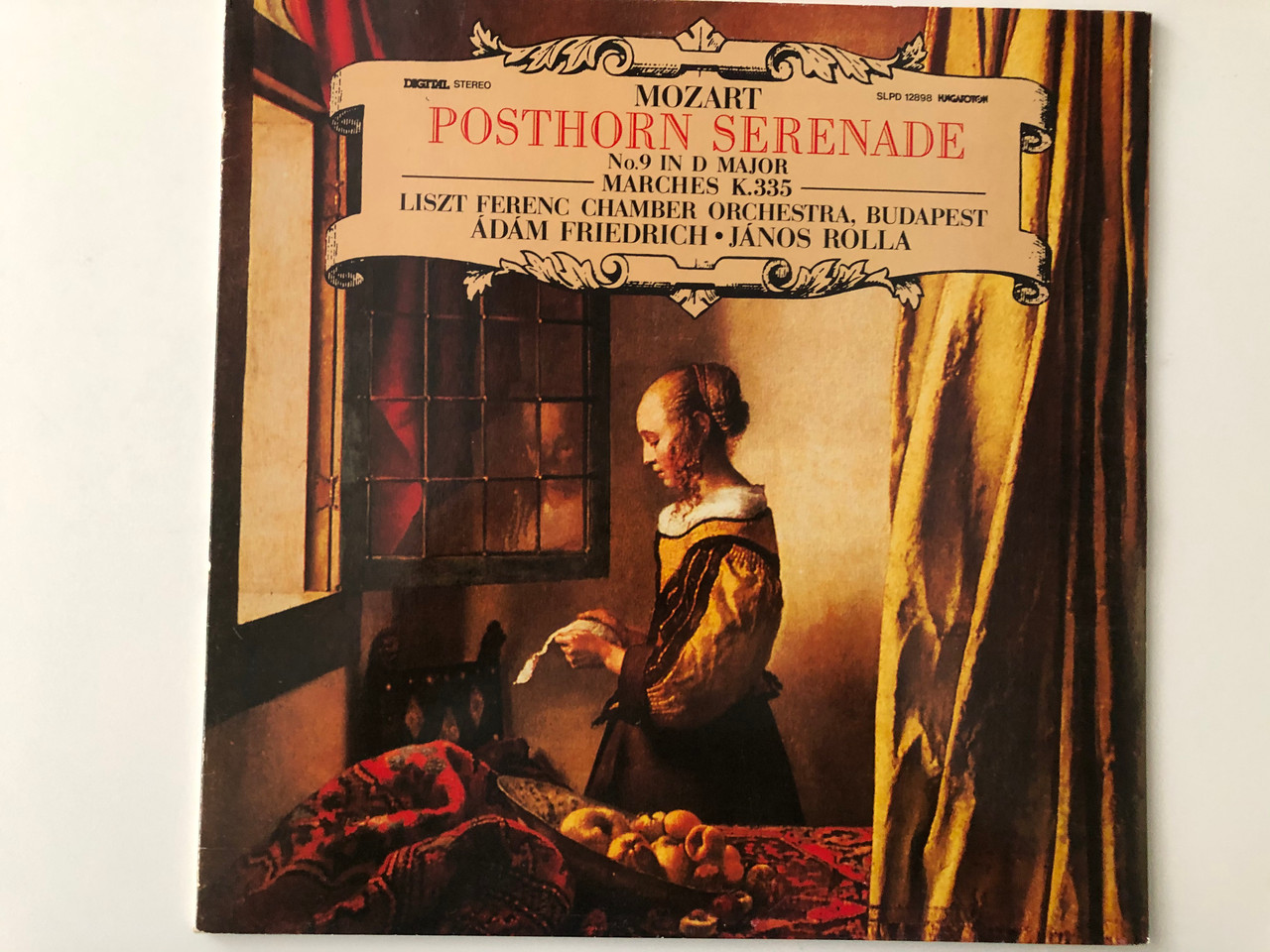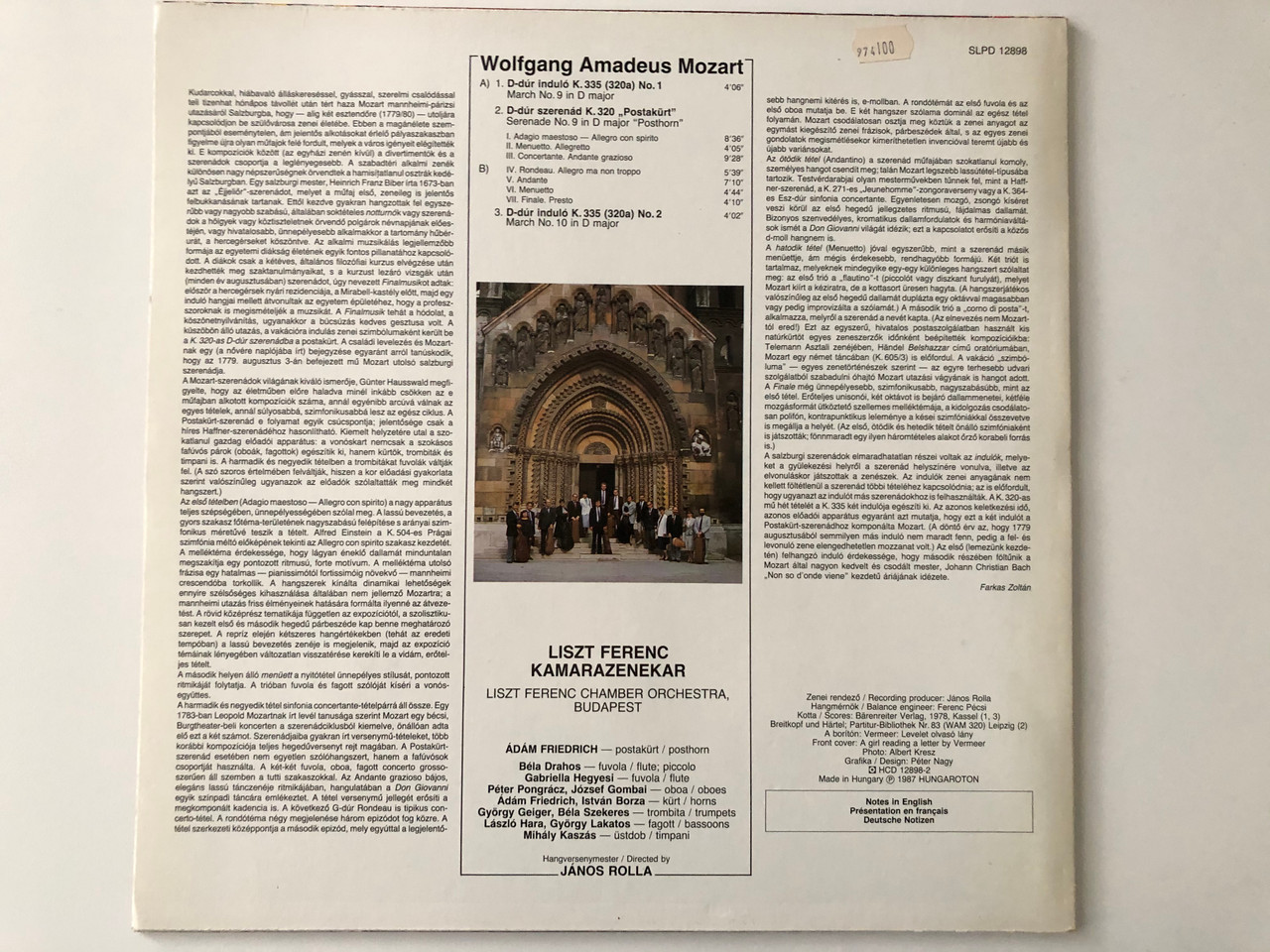Description
Mozart – Posthorn Serenade No.9 In D Major; Marches K335 / Liszt Ferenc Chamber Orchestra, Budapest, Ádám Friedrich, János Rolla / Hungaroton LP 1987 Stereo
SLPD 12898
The Serenade for Orchestra No. 9 in D major K. 320, Posthorn, was written by Wolfgang Amadeus Mozart in Salzburg, in 1779. The manuscript is dated 3 August 1779 and was intended for the University of Salzburg's "Finalmusik" ceremony that year.
The serenade is scored for 2 flutes, piccolo, 2 oboes, 2 bassoons, 2 horns, 2 trumpets, post horn, timpani and strings. It has seven movements:
- Adagio maestoso – Allegro con spirito
- Minuetto
- Concertante: Andante grazioso in G major
- Rondeau: Allegro ma non troppo in G major
- Andantino in D minor
- Minuetto – Trio 1 and 2
- Finale: Presto
The Concertante and Rondeau movements feature prominent concertante sections for flutes, oboes, and bassoons. These were performed on their own in a concert in the old Vienna Burgtheater on 23 March 1783, along with the Haffner symphony, an aria from Idomeneo, and several other works.
The first trio of the second minuet features a solo piccolo (called "flautino" in the manuscript) played over strings. The second trio of the second minuet features a solo for the post horn. This solo gives the serenade its nickname.
A typical performance lasts approximately 45 minutes.
Tracklist:
| A1 | D-Dúr Induló K.355 (320a) No.1 |
4:06 | |
|
D-Dúr Szerenád K.320 "Postakürt" |
|||
| A2 | I - Adagio Maestoso - Allegro Con Spirito |
8:36 | |
| A3 | II - Menuetto. Allegretto |
4:05 | |
| A4 | III - Concertante. Andante Grazioso |
9:28 | |
| B1 | IV - Rondeau. Allegro Ma Non Troppo |
5:39 | |
| B2 | V - Andante |
7:10 | |
| B3 | VI - Menuetto |
4:44 | |
| B4 | VII - Finale. Presto | 4:10 | |
| B5 | D-Dúr Induló K.335 (320a) No.2 |
4:02 |
- Composed By – Wolfgang Amadeus Mozart
- Conductor, Producer – János Rolla
- Design – Péter Nagy (3)
- Engineer – Ferenc Pécsi
- Horn [Posthorn] – Ádám Friedrich
- Liner Notes – Farkas Zoltán (3)
- Orchestra – Liszt Ferenc Chamber Orchestra
- Photography By – Albert Kresz























